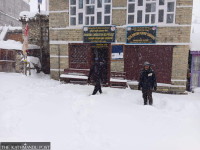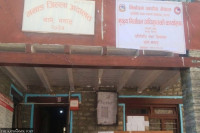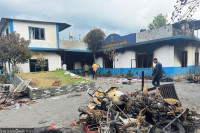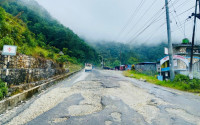Gandaki Province
Villagers relieved of water crisis with completion of lifting project
Rs106.2 million was spent on the project that supplies water to over 1,000 households in Baglung Municipality.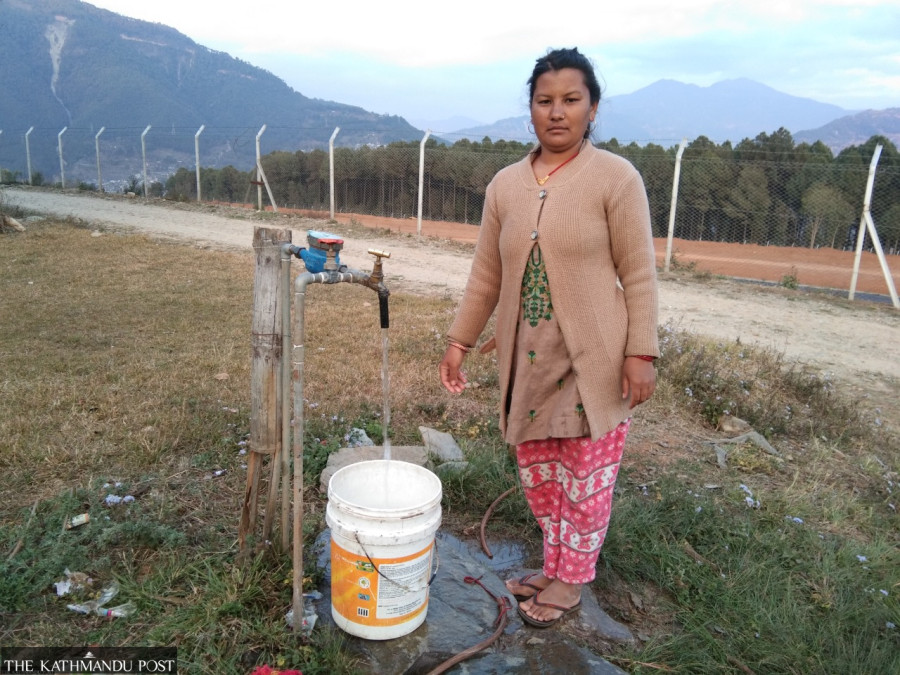
Prakash Baral
Until a few months ago, the residents of Narayansthan in Baglung Municipality Ward No 14 used to fetch water from a pond in a nearby rivulet. They had dug up the pond to store water from the rivulet.
However, the stored water in the pond was unsafe to drink and caused an outbreak of diseases in the rainy season, according to the locals. The shortage of water in the villages also did not support building toilets, leaving the villagers with no choice but to defecate openly.
“As people used to defecate openly, during the rainy season the rainwater would wash human faeces into the pond used as storage for drinking water,” said Dhruba Pariya, a local resident. “Many people fell ill in the rainy season after drinking water from the pond.”
According to him, people in the villages would suffer from various water-borne diseases like diarrhoea, dysenteries, typhoid and jaundice throughout the rainy season.
But water-borne diseases and illnesses have now become a thing of the past for the locals of Narayansthan after the completion of a water lifting project. The project now supplies drinking water to every household in Narayansthan.
In the initiation of ward chairman Chakra Bahadur Khatri, the Department of Water Supply and Sewerage Management released a budget to construct Narayansthan Lift Drinking Water Project. The project was completed a few months ago at the cost of Rs 106.2 million. The locals invested 10 percent of the total project cost.
Under the project, water is lifted to the settlement from a spring on the banks of the Kaligandaki river, which is about 700 metres below. The lifted water is then distributed to around 1,000 households of Baglung-14 through three reserve tanks with the capacity of storing 700,000 litres.
“Each household in the settlement is connected with the water supply line now. Our struggles to manage water are finally over,” said Jamuna Shrestha, a local resident. “The supplied water is clean. We further boil it before consumption and people do not fall ill as often as they used to before.”
Water taps have been installed in 1,025 houses of Ward No 14 so far. The project also supplies water to 150 houses at Ward No 13. With the regular supply of water, the villagers have started constructing toilets and growing green vegetables even in the dry season.
“Earlier, we could grow green vegetables in our field only in the rainy season. Now the villagers have started growing vegetables all around the year,” said Shrestha.
The drinking water project charges Rs 150 a month from each household. The amount is used to provide salary to eight employees at the drinking water project.
“The water project spends around Rs 1.6 million annually to provide salaries to its employees,” said Khatri.




 20.12°C Kathmandu
20.12°C Kathmandu.jpg)
